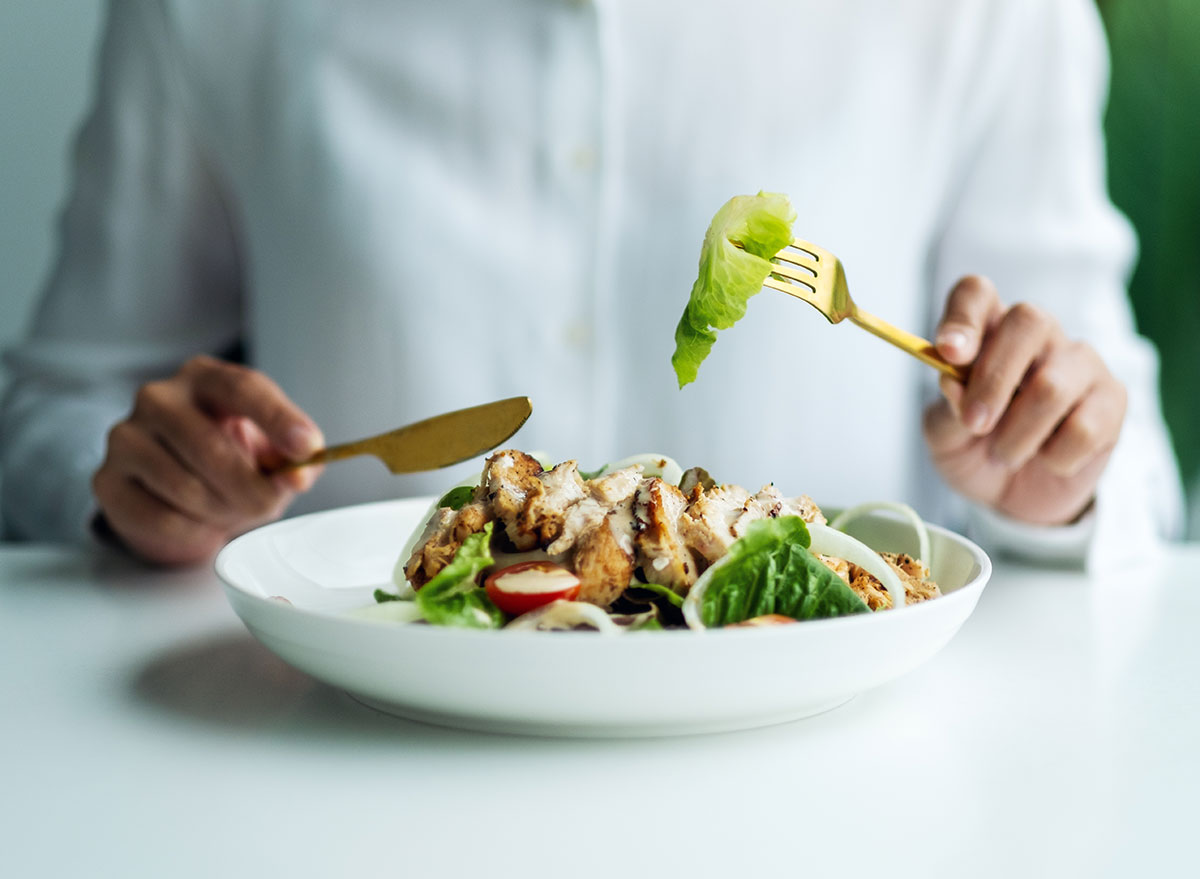When it comes to weightloss or maintenance, of course, what you eat is crucial, and some research suggests when you eat is also important. But a new study in scientific reports suggests that another big component of your eating habits can help: chewing your food more slowly.
To determine the potential effects of slow chewing, the researchers asked 11 healthy, normal-weight men to perform three tests: drinking liquid food normally every 30 seconds, drinking liquid food but holding it in the mouth for 30 seconds before swallowing, and chewing liquid food. food for 30 seconds before swallowing.
All three approaches resulted in the same level of satiety, but it was the slow chew that turned out to be unique, because it increased what’s called diet-induced thermogenesis, or DIT. This refers to the amount of heat that is generated in the body after eating and how it affects your metabolic rate. A low level of DIT tends to promote weight gain, while a high level has the opposite effect.
Although it may seem like a minor action, increased chewing among participants raised their DIT, and the researchers noted that the difference per meal or snack might be small, but the cumulative effect realized each time you eat could be substantial.

Related: The #1 Best Juice to Drink Every Day, Science Says
Although the study has limitations due to its small sample size, it is not the first to make the connection between eating slowly and losing or maintaining weight. For example, a clinical trial published in the Journal of the Academy of Nutrition and Dietetics found that increasing the number of chews before swallowing reduced meal size in part because people ate for longer, leading to less food.
another study in Frontiers in Psychology suggests that there may also be a mental component. In that research, participants who paid more attention to chewing showed a change in their brain’s reward circuitry, leading to less impulsive eating behaviors.
Another benefit of slow eating is becoming more mindful of what you’re eating and simply enjoying the taste more, says New York-based dietitian Vanessa Rissetto, RD, co-founder of Culina Health. She says it can be overwhelming trying to eat each bite mindfully, but as a meditation exercise, start with a modest attempt.
For example, try to be mindful of your next three bites of food. The more often you implement the strategy into your diet, the more likely you’ll get to that other big food question, which can help you improve your eating habits to achieve your weight loss goals.
“Are you eating because you’re really hungry, or because you’re bored, stressed, or tired?” Risetto says. “Are you getting into that habit cycle where a sugary item makes you feel good, so you just grab one because you’re on autopilot? Understanding why you’re eating makes a big difference.”
With so much awareness, you can lead to healthier eating habits without feeling deprived along the way, he adds.
For more information, take a look The best dinner combinations to lose weight faster.

